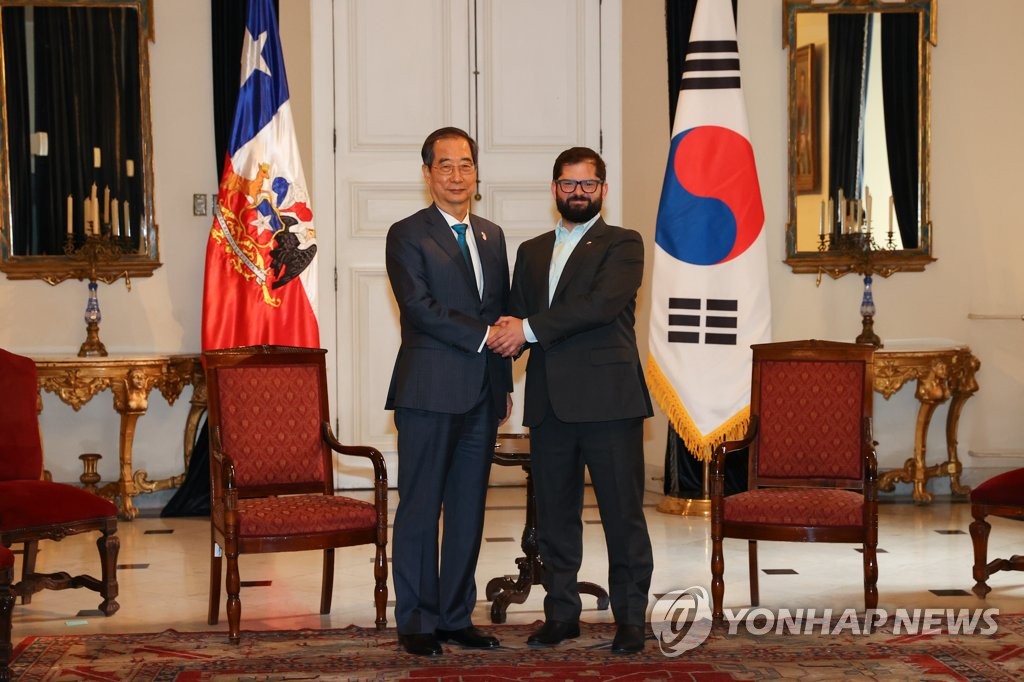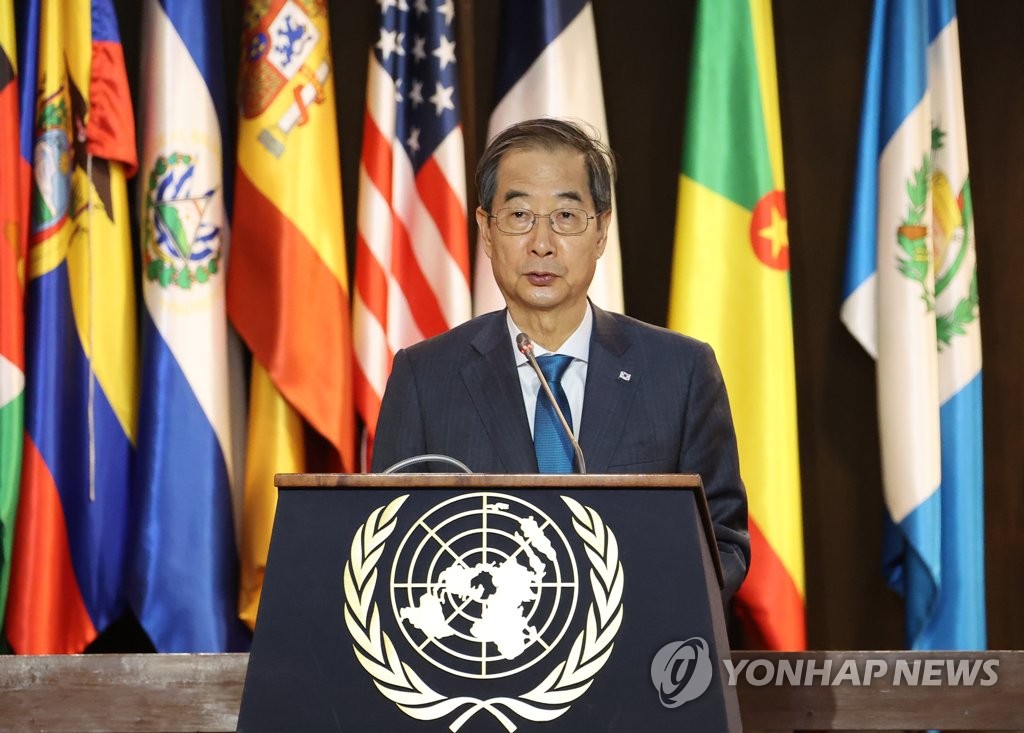- California Assembly OKs highest minimum wage in nation
- S. Korea unveils first graphic cigarette warnings
- US joins with South Korea, Japan in bid to deter North Korea
- LPGA golfer Chun In-gee finally back in action
- S. Korea won’t be top seed in final World Cup qualification round
- US men’s soccer misses 2nd straight Olympics
- US back on track in qualifying with 4-0 win over Guatemala
- High-intensity workout injuries spawn cottage industry
- CDC expands range of Zika mosquitoes into parts of Northeast
- Who knew? ‘The Walking Dead’ is helping families connect
S. Korea, Chile agree to resume FTA upgrade talks this year
South Korean Prime Minister Han Duck-soo held talks with Chilean President Gabriel Boric on Tuesday and agreed to resume negotiations this year to upgrade a bilateral free trade agreement that went into effect in 2004.
They also agreed to elevate bilateral relations to a strategic partnership as the two nations mark the 60th anniversary of establishing diplomatic ties this year.
Chile was South Korea’s first free trade deal partner, and the deal has served as a springboard for South Korean firms seeking to tap the Central and South American markets.
After the talks, Han told reporters that such agreements could serve as “an opportunity to solidify Chile as a partner in South America.”
Han and Boric exchanged opinions to deepen cooperation in the fields of trade, investment, mineral resources and climate change.


South Korean Prime Minister Han Duck-soo (L) and Chilean President Gabriel Boric pose for the camera before holding talks on Oct. 11, 2022, in this photo provided by Han’s office. (PHOTO NOT FOR SALE) (Yonhap)
Han also asked Boric for support for South Korea’s bid to host the 2030 World Expo in the southeastern port city of Busan.
On the sidelines of the talks, the Korea Mine Rehabilitation and Mineral Resources Corp. signed a memorandum of understanding (MOU) with its Chilean counterpart on the supply of mineral resources.
The MOU is part of South Korea’s efforts to diversify supply chains of key raw materials used in batteries, in a move to cope with the U.S. Inflation Reduction Act.
The U.S. law gives tax credits only to electric vehicles assembled in North America, preventing South Korean carmakers from receiving such credits.
Under the U.S. law, however, South Korean carmakers could receive the subsidies if they use raw materials produced in the United States or Chile, which signed a free trade deal with Washington, for batteries in electric cars.
Han told reporters that the MOU would “significantly help” South Korea cope with the U.S. law.
“I think we should invest more in Chile for raw materials, such as minerals, which are key to economic security,” Han said.
Later in the day, Han delivered a keynote speech at a meeting of the Economic Commission for Latin America and the Caribbean.
South Korea, Central America and Latin America “will be able to strengthen cooperation based on mutual trust as effective partners contributing to the stability of the global supply chain,” Han said in the speech.
In particular, South Korea could become a reliable partner for Central and Latin American nations in the fields of hydrogen economy, farm renovation and digital innovation, Han said.
Chile is the first leg of Han’s three-nation trip that will also take him to Uruguay and Argentina.











